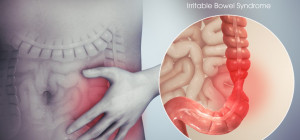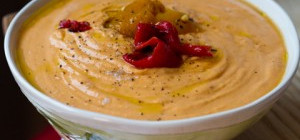 Juicing and juice cleanses have been popping in and out of conversations for the past decade or more. Juicing takes fruits, vegetables, and herbs and extracts their liquids. These liquids, juice, are chock-full of vitamins and minerals, making juicing a great supplement to any diet. The word supplementary there is key. Juicing should never be the be-all end-all of any diet, nor the main focus. A normally functioning body is not made to live solely off of juice. As with any diet, there is a right way and a wrong way to go about it. Let us discuss the common mistakes that people make when it comes to juicing and how to add juicing into your life in a way that will be most beneficial to you.
Juicing and juice cleanses have been popping in and out of conversations for the past decade or more. Juicing takes fruits, vegetables, and herbs and extracts their liquids. These liquids, juice, are chock-full of vitamins and minerals, making juicing a great supplement to any diet. The word supplementary there is key. Juicing should never be the be-all end-all of any diet, nor the main focus. A normally functioning body is not made to live solely off of juice. As with any diet, there is a right way and a wrong way to go about it. Let us discuss the common mistakes that people make when it comes to juicing and how to add juicing into your life in a way that will be most beneficial to you.
Do Not Skimp on the Veggies
One of the major mistakes that people make when they begin to juice is that they only juice fruits. Yes, fruits are delicious, and yes, fruits are full of essential vitamins and minerals. The drawback with fruits is that they are also full of sugars. While these sugars are naturally occurring and are obviously better than consuming the same amount of a refined sugar, but it still comes down to the fact that sugars should be limited in any diet. To look at this from another angle, a medium-sized apple, say, three inches in diameter, contains 19 grams of sugar. That same apple though has 4.4 grams of dietary fibre, or around 17 percent of your daily fibre needs. The result there is that when you physically consume an apple, you will want to eat only one, because the fibre fills you. With juicing, the fibrous content is removed. To make an eight ounce cup of apple juice, you will need at least three of those medium-sized apples. Now, you are consuming just under 60 grams of sugar! For comparison, a can of Coca-Cola has 39 grams of sugar. See how this adds up? By throwing vegetables into the mix, we are cutting the sugar content while increasing the vitamin and mineral content. If juicing vegetables sounds scary to you, start with milder tasting vegetables such as spinach and celery before graduating on to kale, peppers, and other more pungent-tasting vegetables.
Tip: Feeling juicy? Check out this Super Angel juicer review to get started on finding the right juicer for your juicing lifestyle.
A Technicolour World
Variety is the spice of life. Fruits, vegetables, and herbs come in a vast and wide variety of colours, textures, and flavours. Each one has its own unique blend of naturally occurring vitamins and minerals. A common mistake people make is juicing the same blend of fruits and vegetables day in and day out. Mix it up here and there with new herbs and different fruits and vegetables – maybe some you have never even tried before! Juicing is a natural way to introduce more vitamins and minerals into your diet – the same idea as taking any vitamin or mineral supplement. Juicing’s advantage is that our bodies more readily take up vitamins, minerals, and other nutrients better via food sources, rather than from a pill.
Stop With the Meal Replacement
Eating is a necessity. If you are starting to juice to lose weight, do not skip meals! Juicing, for the amount of nutrients that you are obtaining, is low calorie. However, juices lack many of the nutrients that our bodies need in order to function – mainly fibre, proteins, and fats. Subsisting solely off of juice will make you lose weight fast, yes, but you will essentially be starving your body of essential nutrients, malnourishing yourself. Malnourishment is not healthy. What happens to your body during a juice cleanse as you deprive yourself of fibre, proteins, and fats, is that once you begin to eat again, your body will clamour onto more proteins and fats that it otherwise would have without the deprivation. During the cleanse, your body believes itself to be starving, and when the “drought” is over, it will try to build up stores in case of another starvation period. If you are looking to lose weight, merely cut calories from high-fat, high-sugar, and low-nutrient foods. Adding juices as a supplement allows you to literally drink in higher volumes of vitamins and minerals.
Before making any dietary changes, consult your doctor or dietitian!







